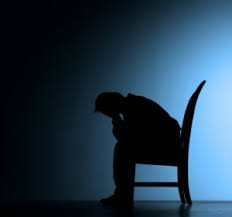Emotional Independence and the Types of Love

Emotional independence is gained through a change in the way we approach loving others and loving ourselves. Children are naturally and understandably emotional dependent on their parents, because all of their emotional needs are (at first) supplied by their parents – and their siblings, peers, teachers, other family members and others in society. They have little ability to supply needs on their own. If you continue this pattern when you grow up, you’re going to continue to be emotionally dependent on others to supply validation, etc. Even competition with others is a form of negative validation for your emotional needs. Eros-type love of partners is rooted in desire and sees loves as an exchange of emotional needs. Love is this way is a transaction, in which each individual expects the other to fulfill their needs (and even to anticipate them) and the person is upset and (in some cases) feels like less of a person or judges the other person for failing to fulfill their emotional needs (or both). This type of romantic (Eros) love is a dependent type of love in which there’s an idea of possession of the other person, and that possession also breeds more dependence. Even hatred of another individual can be the flip side of the same transaction-based and, when our desires and expectations are not met (or we don’t win or we don’t get revenge or whatever that requires the other person to be in relation to us to meet our emotional needs), we suffer. Our heart hurts because we are expecting something that we can’t control. We are basing our contentment and peace of mind (and of heart) on the behaviors, emotions, words, and intentions of the other person. The problem really comes into play when you start to realize that there’s no end to suffering. No other person can live up to all of your desires, because your desires are a fire that constantly has to be fed, pacified and stoked. This is the way of black-and-white thinking and is a reason that when a person (BPD or not, although BPD people live this way a lot, because of the inability to self-regulate and looking to others to be that self-regulator) approaches relationships that way, they suffer. You may not suffer in the “good times” but those good times are bound to go away (at least in certain moments) because you can’t control 1/2 of the equation – the other person. This way of approaching love relationships is childish and emotionally immature – I’m not judging anyone, I’m saying that it is a child’s way of approaching relationships because they have little self-efficacy.
A while ago I wrote something on Eros v. Agape love in the ATSTP List. I think that the Agape way of approaching love is all accepting and all appreciating for others in the way they actually are, rather than for what they can supply to us to keep the fires of passion burning. It is dispassionate and detached in the same way you might appreciate a beautiful sunset for what it is. You ask nothing of the sunset. It is as it is. People can’t be controlled. If you combine this way of loving and appreciating others with compassion, in which you can deeply relate to other’s suffering, then IMO you have a formula for emotional independence. It requires (again IMO) radical acceptance of others and compassion for other’s suffering. It also requires an acceptance of your own worth (core value). How do you get there? I guess that will have to be talked about in another post

